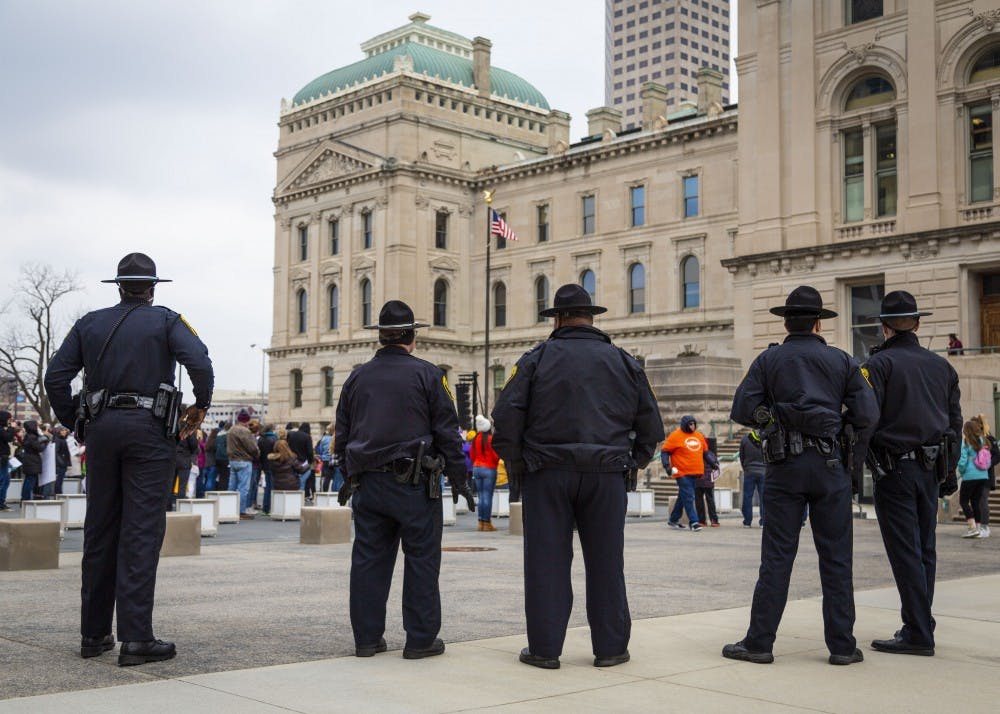A renewed fervor has mounted once more following the brutal killing of an innocent Muslim man in Indianapolis. The issue at hand is that of hate crimes, or more appropriately, how Indiana legislators struggle to define and combat them.
Indiana needs to work harder to produce effective, direct legislation to protect targeted populations.
The state’s most recent effort combating the matter was Senate Bill 12, which was stripped of its protections for specific minority groups, including race, religion, sex, sexual orientation, gender identity and disability two days before the Senate voted on it. It passed 39-10 on Feb. 22 and served as a weakened answer to those who called for it.
Sen. Aaron Freeman, R-Indianapolis, drafted the amendment to generalize the language, saying it “covers everyone.”
This intentional disregard of an opportunity to craft a specific bill in the wake of an innocent man’s death is damaging to all Hoosiers. The entire purpose of a hate crimes bill is to define what offense fall in this category and the explicit groups who suffer from them.
States that have passed similarly ambiguous pieces of legislation include Georgia and Utah.
Georgia saw its proposal thrown out by the Georgia Supreme Court in 2000 because it was “unconstitutionally vague.” It, joined by Indiana and three other states, still have no hate crimes law in effect.
Utah, on the other hand, made its bill law, and there have been no convictions for hate crimes in the 20 years since. Luckily, its Senate has recently voted to fortify the bill, lengthening convictions for crimes targeted toward certain demographics.
If there is no definitive phrasing to protect minority groups, we’ll simply fall into a chasm of inability like these states.
Hoosiers are making a push for a concise bill, but their lawmakers aren’t. According to Indy Politics, 60 percent of Indiana residents want a clear hate crimes bill to be law.
Indiana Forward is a bipartisan, statewide campaign for hate crimes legislation that is composed of numerous faiths, nonprofits and other various entities. This group has been appealing to lawmakers in Indianapolis on this subject since January.
If legislators wish to appease the majority of this state’s residents who are fighting for a bias crimes law, they’ll have to begin by noting which groups are most targeted. From January 2016 through September 2018, Bloomington alone experienced 14 anti-black hate crimes.
Students have also heightened their vocal nature on the matter. Bloomington protesters marched against hate in November as a gesture to legislators, as well as a tribute to those killed in the Tree of Life Synagogue shooting in Pittsburg. In the time since, the climate of discrimination has only worsened.
Regardless of the state's ineffective pursuits to this point, Hoosiers have made it clear how they feel. This is a change that has to come quickly and clearly.
Some quality examples of areas with clearly outlined bias crimes legislation are California, Hawaii and even Washington D.C. While a bit different demographically, Indiana can begin to better protect its citizens by devising a similar plan of action.
Much of the division that builds between different groups is due to a lack of communication and understanding. By neglecting to clarify Senate Bill 12, we’re expanding the divide.




